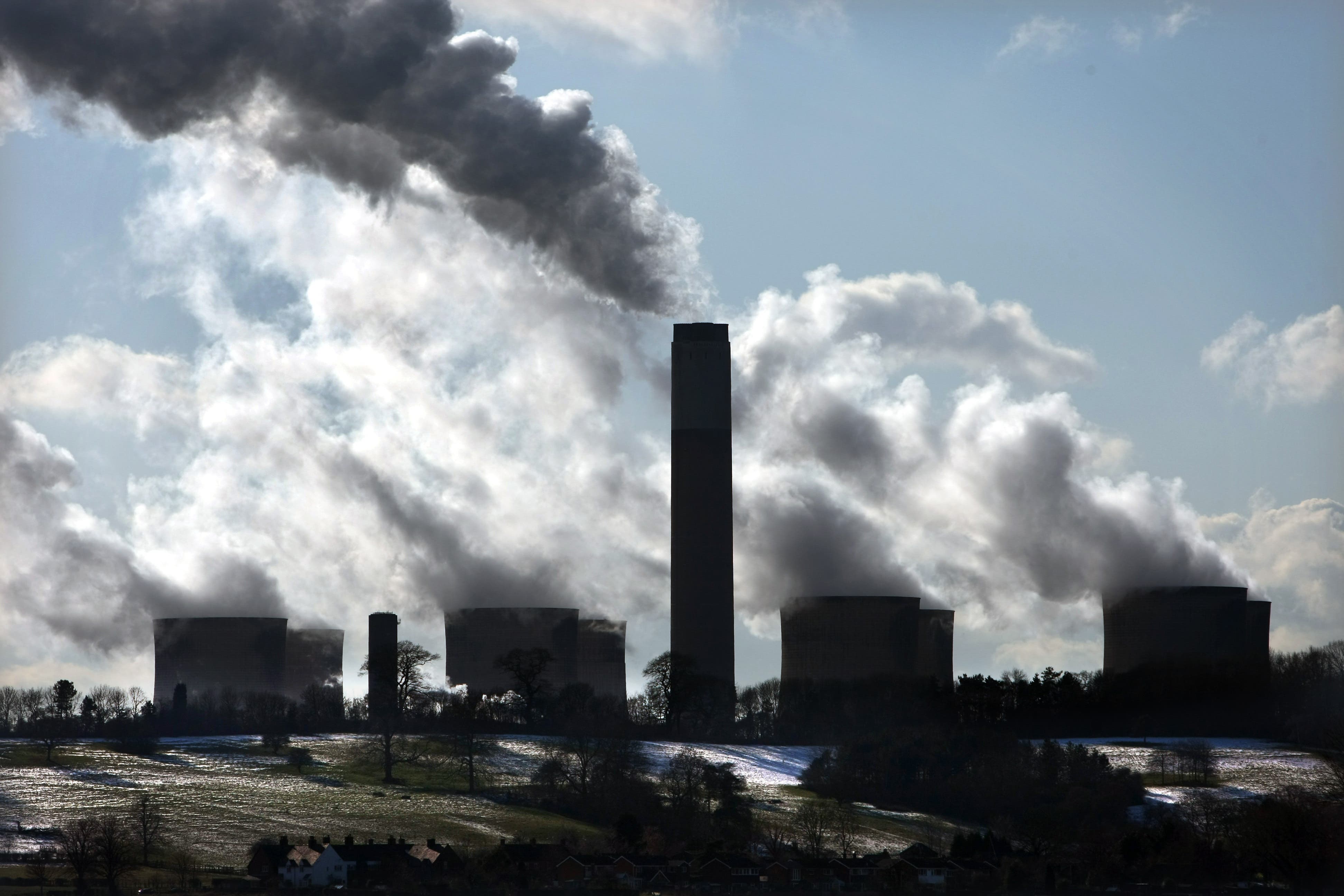Barclays among major banks facing pressure to stop financing fossil fuels
Large investors say recent surge in energy prices shows relying on fossil fuels is risky

Your support helps us to tell the story
From reproductive rights to climate change to Big Tech, The Independent is on the ground when the story is developing. Whether it's investigating the financials of Elon Musk's pro-Trump PAC or producing our latest documentary, 'The A Word', which shines a light on the American women fighting for reproductive rights, we know how important it is to parse out the facts from the messaging.
At such a critical moment in US history, we need reporters on the ground. Your donation allows us to keep sending journalists to speak to both sides of the story.
The Independent is trusted by Americans across the entire political spectrum. And unlike many other quality news outlets, we choose not to lock Americans out of our reporting and analysis with paywalls. We believe quality journalism should be available to everyone, paid for by those who can afford it.
Your support makes all the difference.A group of investors with combined assets of more than $1.5 trillion (£1.23 trillion) have written to five of Europe’s biggest banks, including Barclays, urging them to stop lending to fossil fuel firms.
Responsible investment group ShareAction coordinated the letters which have been backed by up to 30 investors.
They ask one or more of the banks to stop directly financing new oil and gas fields by the end of this year.
British bank Barclays, and European banking giants BNP Paribas, Credit Agricole, Deutsche Bank and Societe Generale, all received letters expressing concern that funding fossil fuel projects could jeopardise the global path to net zero.
The letter to Barclays’ group chief CS Venkatakrishnan read: “Barclays is the second biggest European provider of financing to 50 of the top oil and gas expanders, having provided over $48bn (£39.5bn) between 2016 and 2021.
“We, therefore, call on Barclays to stop directly financing new oil and gas fields by the end of 2023 at the latest, to demonstrate its commitment to tackling the climate crisis and keeping global warming to 1.5C.”
These investor-backed letters should be a wake-up call to banks that have made net-zero commitments
It was signed by 27 investors, including Aegon Asset Management, Danske Bank and Brunel Asset Management, with combined assets under management of $1.4 trillion (£1.15 trillion).
The powerful group said that the surge in energy prices, triggered by Russia’s invasion of Ukraine, has shown how risky it is to rely on fossil fuels in times of geopolitical uncertainty.
“Far from locking in long-term dependence on insecure, unpredictable, volatile and environmentally damaging fossil energy, Russia’s actions are a salient reminder of the need to accelerate away from fossil to renewable,” the letter read.
We are in regular dialogue with many stakeholders, including ShareAction, on climate and broader sustainability topics and we value their ongoing thoughtful engagement
Jeanne Martin, head of the banking programme at ShareAction, said: “These investor-backed letters should be a wake-up call to banks that have made net-zero commitments.
“First, they must stop directly financing new oil and gas fields.
“Second, banks must urgently turn their attention to the companies that are enabling new oil and gas fields from being discovered and developed.
“As the letters point out, direct financing is only the tip of the iceberg.
“Investors are putting these banks on notice that they will face ever-increasing pressure if they don’t act soon to reverse their financing of new oil and gas.”
In December, HSBC pledged to stop funding new oil and gas fields after receiving criticism from shareholders and activist groups over its climate change policies.
ShareAction said the commitment sent a “strong signal” to fossil fuel giants and governments and set a “new minimum level of ambition” for all banks committed to net zero.
However, it pointed out that the pledge does not include financing to existing companies that have oil and gas expansion plans.
In fact, asset financing for new oil and gas represents only 8 per cent of total financing to top oil and gas expanders, the group stressed.
BNP Paribas is the third biggest provider of financing to 50 of the top oil and gas expanders, having provided more than $46 bn (£37.9 bn) between 2016 and 2021, ShareAction said.
Credit Agricole is the fourth largest, Societe Generale is the fifth and Deutsche Bank is the sixth.
The letters call for all the banks to respond prior to announcing their AGM notice, “as we see this as an opportunity to make such a commitment in your annual communications to shareholders”.
A spokesperson from Barclays said: “As one of the first banks to set an ambition to become net zero by 2050 we are clear that addressing climate change is an urgent and complex challenge.
“We can make the greatest difference as a bank by working with customers and clients as they transition to a low-carbon economy, focusing on facilitating the finance needed to change business practices and scale new green technologies.
“This includes many oil and gas companies that are actively engaged and critical to the transition, and committed significant resources and expertise to renewable energy.
“We are in regular dialogue with many stakeholders, including ShareAction, on climate and broader sustainability topics and we value their ongoing thoughtful engagement.”
A spokesperson from Deutsche Bank said: “We have strict guidelines for business activities in carbon-intensive sectors and have significantly reduced our engagement in these sectors since 2016.
“Deutsche Bank has established business restrictions for coal and oil and gas sectors and we are committed as a member of the Net Zero Banking Alliance to reducing our financed emissions in the oil and gas sector: 23 per cent by 2030, and 90 per cent by 2050.”
The three remaining banks have been contacted for comment.




